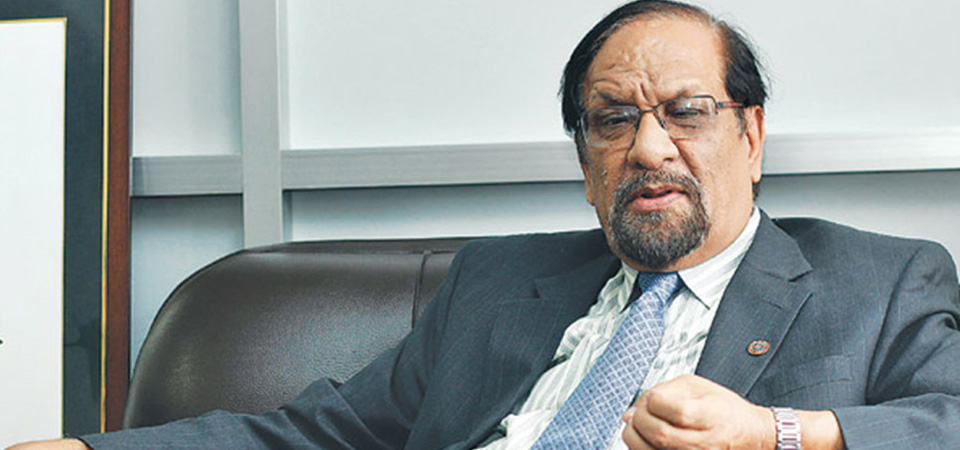Consensus needed for liberal economic policy: Dr. Mahat

By A Staff Reporter
Kathmandu, Oct. 2: Former Finance Minister and Nepali Congress leader Dr. Ram Sharan Mahat said on Friday that an all-party consensus on liberal economic policy and good governance could pave way for high trajectory of growth in Nepal.
“The country should also enhance its programme and policy implementation capacity,” he said while speaking at a programme organised to launch a book – Nepalko Arthatantraka Aayamharu – written by Dr. Rewat Bahadur Karki, former chairman of the Securities Board of Nepal (SEBON).
He maintained that liberal economic policies adopted by the country after the restoration of democracy in 1990 helped reduce poverty significantly. “About half of the population – 49 per cent – was living in poverty during the Panchayat era but it has now come down to 17 per cent,” he said.
He stated that democracy promoted private sector and cooperatives which contributed to higher investment, job creation and economic growth.
Dr. Mahat said that Nepali economy needs yet another reform to create environment for more investment, employment and support livelihood activities. “The country must encourage private sector investment which will increase the income of the government which then can mobilise resources in the development and poverty alleviation,” he said.
He defended the privatisation drive initiated by the Nepali Congress government after the restoration of democracy in 1990. According to him, income of government run industries was small and many were sick so privatisation was needed.
Even the communist government in China has opened the economy for private sector investment. It has contributed to the increment of the per capita income of the people and revenue of the government and supported in poverty reduction.
He suggested that the government should increase investment to raise the living standards of the grass root level.
Economist Professor Dr. Bishwambhar Pyakurel said that the book has minutely presented Nepal’s economic condition as a landlocked country and changes in the economic and governance policies.
Dr. Karki said that he had expressed his knowledge and understanding that he acquired in the past four decades in various national and international economic, capital market and monetary organisations. The book discusses about four major sectors of the economy: real sector, public finance, fiscal sector and international trade and payment.
Recent News

Do not make expressions casting dout on election: EC
14 Apr, 2022
CM Bhatta says may New Year 2079 BS inspire positive thinking
14 Apr, 2022
Three new cases, 44 recoveries in 24 hours
14 Apr, 2022
689 climbers of 84 teams so far acquire permits for climbing various peaks this spring season
14 Apr, 2022
How the rising cost of living crisis is impacting Nepal
14 Apr, 2022
US military confirms an interstellar meteor collided with Earth
14 Apr, 2022
Valneva Covid vaccine approved for use in UK
14 Apr, 2022
Chair Prachanda highlights need of unity among Maoist, Communist forces
14 Apr, 2022
Ranbir Kapoor and Alia Bhatt: Bollywood toasts star couple on wedding
14 Apr, 2022
President Bhandari confers decorations (Photo Feature)
14 Apr, 2022










